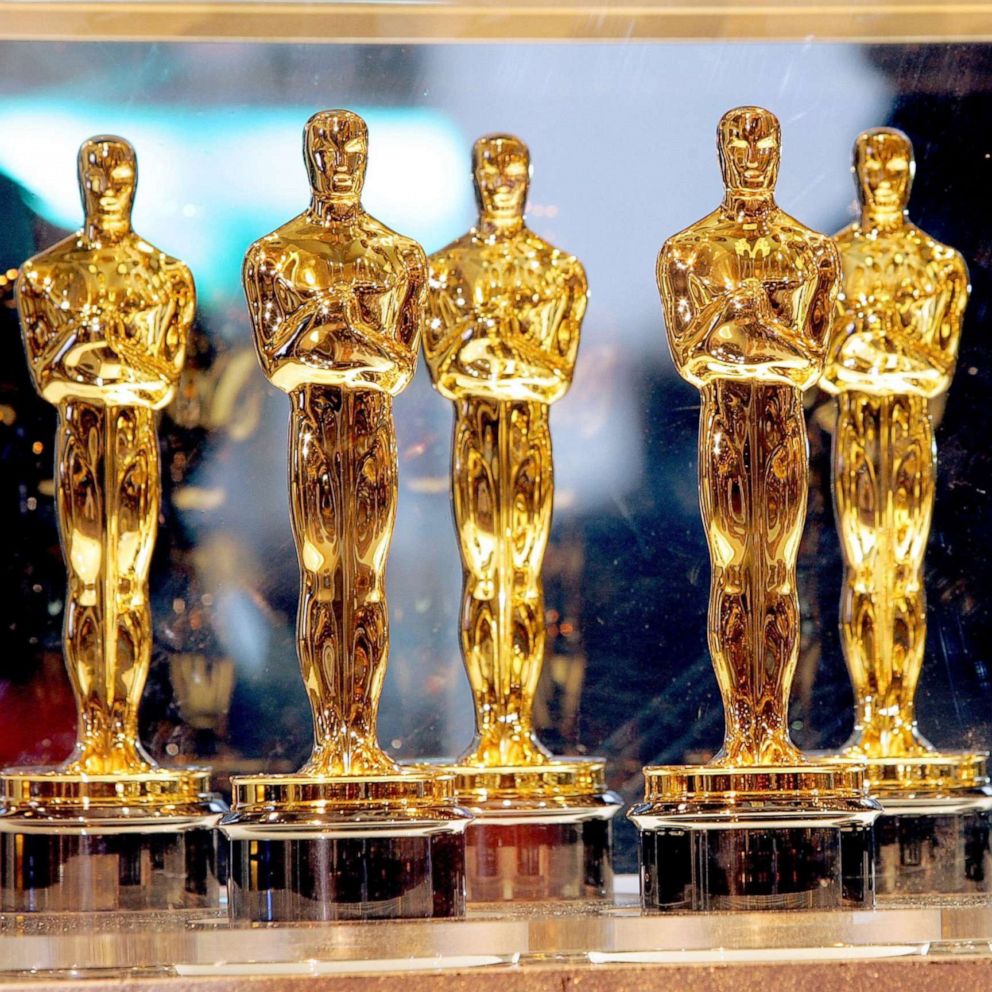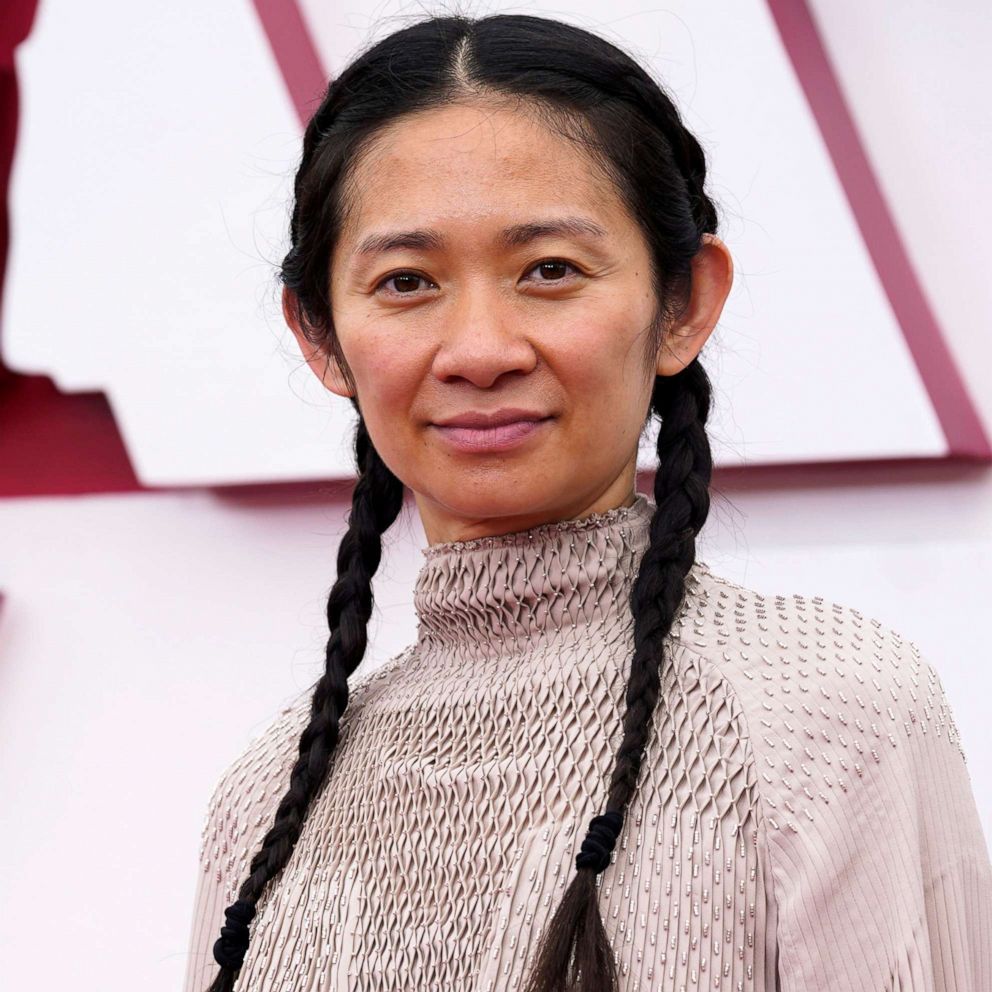Oscars 2021: Peter Travers on the ceremony's highs and lows
The film critic shares what the 2021 Oscars got right -- and where it missed.
They said it couldn’t be done. Produce an Oscar show during a global pandemic in which nominees and presenters, decked out in red-carpet splendor, busted out of lockdown (after being tested and vaccinated) and showed up in person to celebrate the films that managed to find a few theaters to open in but mostly came to us through streaming services.
Oscar 2021 -- the 93rd edition -- set up shop in a train station, LA’s Union Station to be exact, in which we never saw a train. What the creative team, led by Oscar-winning director Steven Soderbergh, did instead was dress the legendary station like a movie set.
The usual cast of thousands was reduced to no more than 170 in the main venue at one time. Invitees could mingle outside before the Big Event inside, where the nominees and winners sat socially distanced in plush booths. No masks. No Zoom speeches from winners lounging at home -- a true blessing.
Regina King, gowned and gorgeous, made a sweeping star’s entrance into the intimate ceremony while the show’s credits rolled just like in a movie.
King was the definition of gracious since the Academy stupidly failed to nominate her directing debut with “One Night in Miami.” She recovered nicely even after she tripped on her gown on her way to the podium.
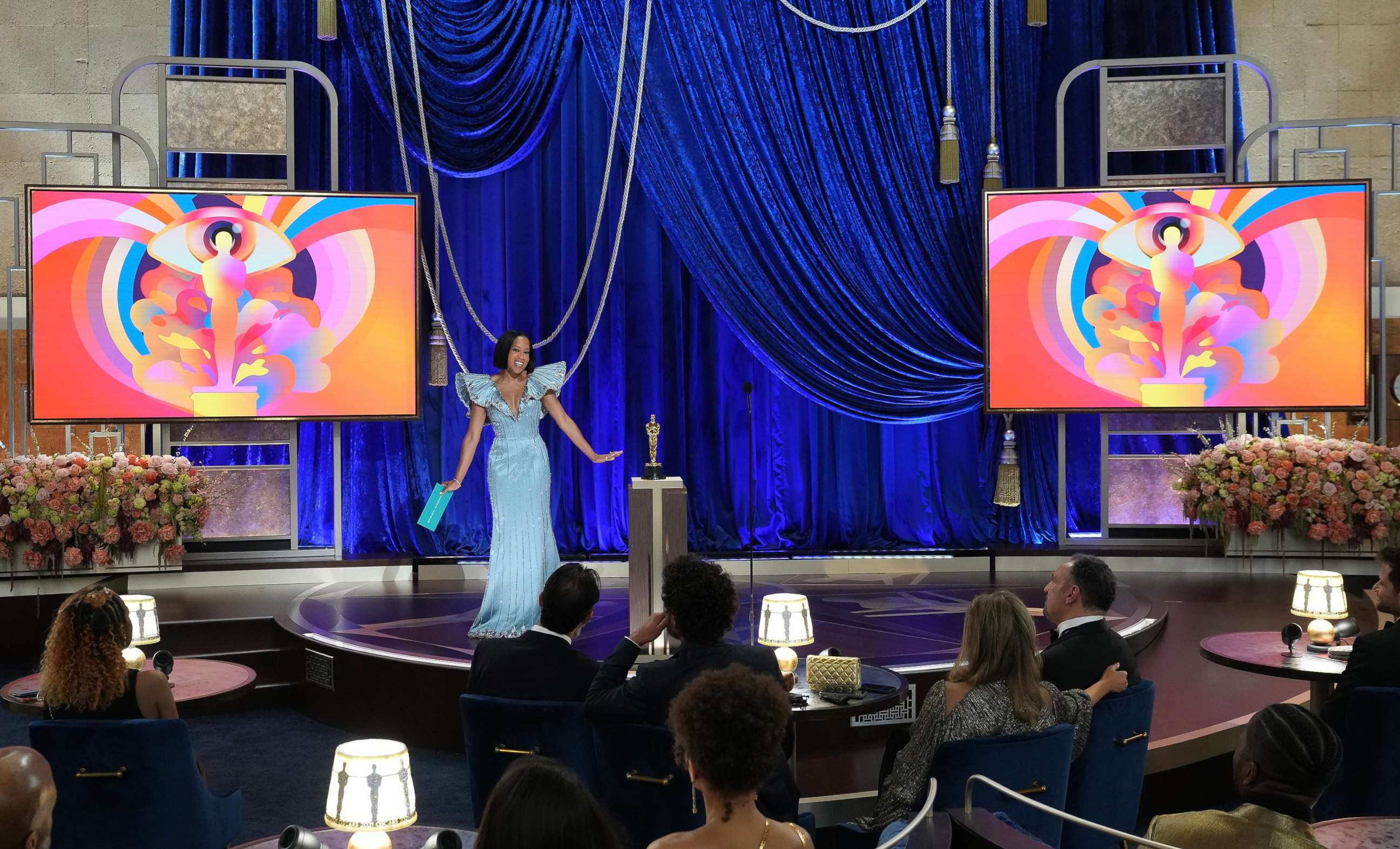
Glamour was back. But it was all Hollywood pretend. No way was this a typical Oscar year. And King knew it, referring to the recent murder trial of former officer Derek Chauvin.
"I have to be honest: If things had come out differently this past week in Minneapolis, I may have traded in my heels for marching boots," she said. "But as the mother of a Black son, I know the fear that so many live with. And no amount of fame or fortune changes that, OK?"
Daniel Kaluuya, the evening’s first acting winner for his stellar supporting performance in “Judas and the Black Messiah,” extolled the virtues of the icon he played, the assassinated Black Panther Party chairman Fred Hampton.
The “Get Out” star also found time for levity: “My mom and dad, they had sex,” said Kaluuya, while the camera cut to his mom looking mortified.
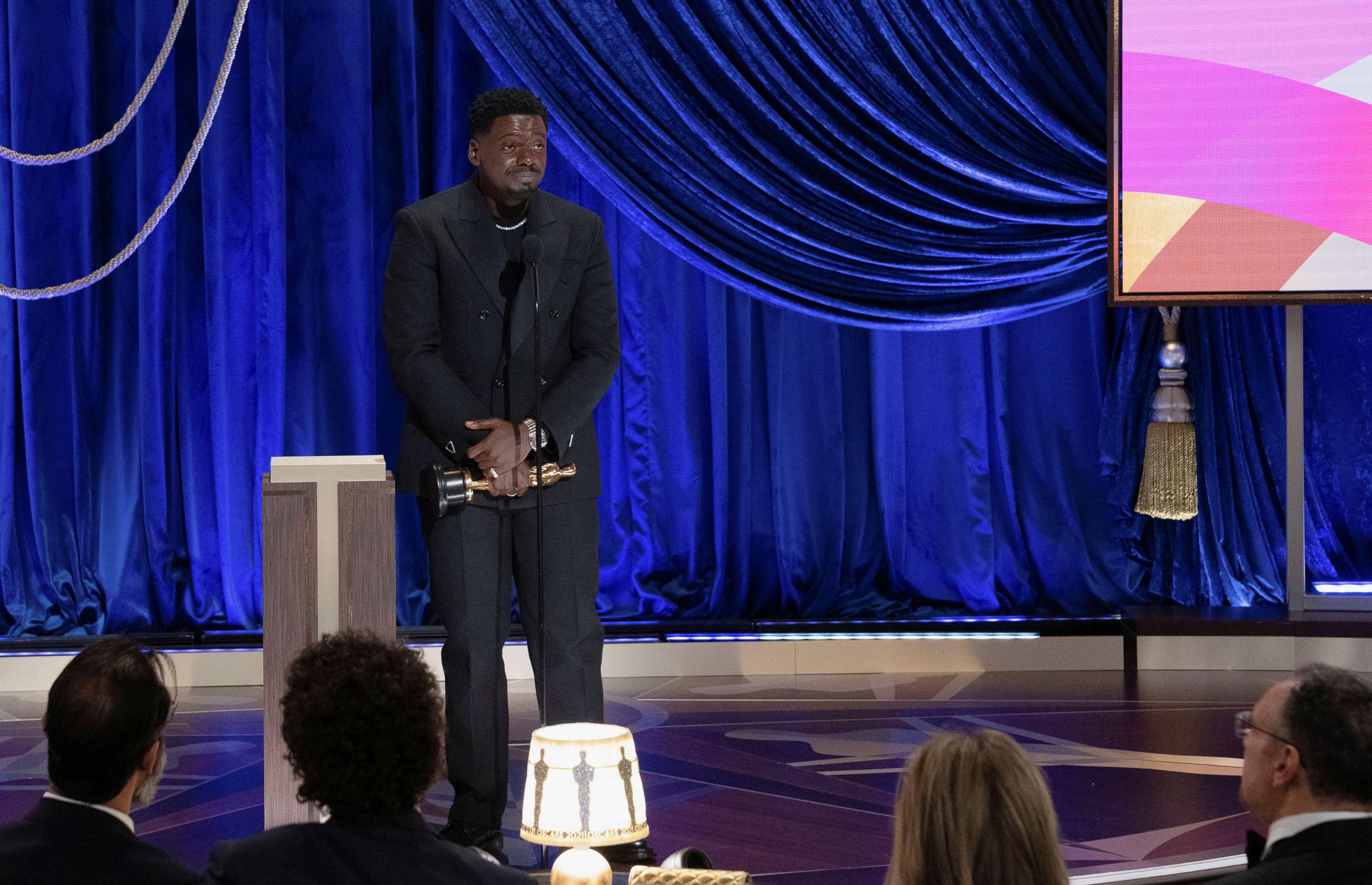
It was when the show reverted to business as usual that the trouble started.
Somewhere along the line, the decision was made to let the winners ramble on without time constraints. There is nothing worse than watching winners reading from endless thank-you lists that included third-grade teachers and their favorite crazy uncle.
Wait. I’m wrong. Even more eye-rolling boredom was ignited by the decision to have presenters introduce nominees, even in the technical categories, with background intros about where they first acquired their love of movies.
The first rule of any movie or award show is, as I see it anyway, show don’t tell.
The telecast stopped cold during these long-winded tells. All at the expense of presenting clips from the films themselves. In a year in which even the best films were little seen, why not show viewers what they’ve been missing. But until the best picture category, what we got was talk, talk, talk.
Luckily, Oscars 2021 did come through with golden moments.
The night’s MVP was adorable best supporting actress winner Yuh-Jung Youn, the feisty grandma from “Minari” who made Oscar history as the first Korean actress to collect the Academy’s Golden Boy.
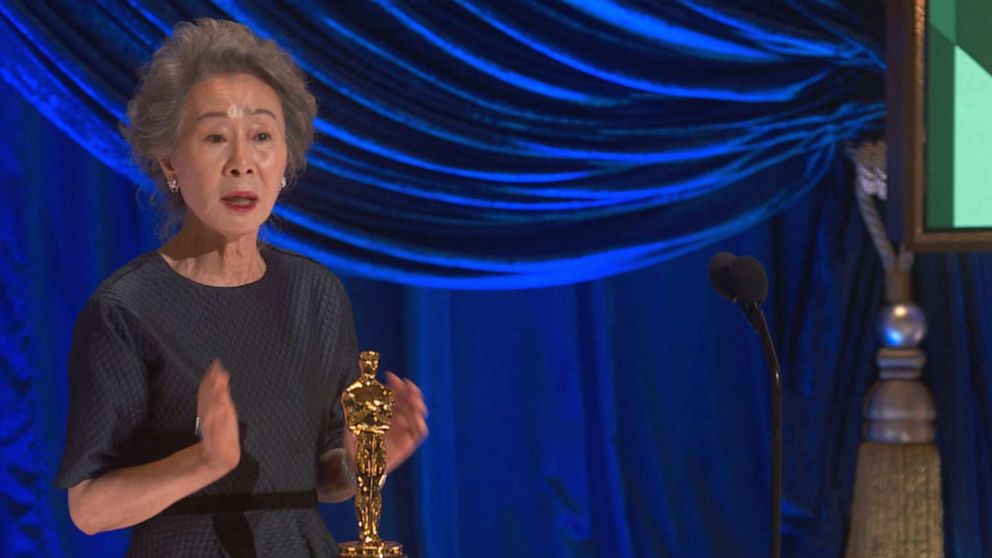
“Brad Pitt—finally,” Youn sassed flirtatiously to her presenter, who also produced “Minari.” She told her fellow nominees, including eight-time loser Glenn Close, “I'm luckier than you.” We were the lucky ones to have her and her joyous spirit on our shores.
Chloé Zhao, the Chinese-born director of “Nomadland,” also made history by becoming the first Asian woman -- and woman of color -- to win the directing Oscar.
She’s also only the second woman, after Kathryn Bigelow (“The Hurt Locker”), to win best director in the Academy’s 93 years.
Zhao also had the last laugh in taking the best picture prize for “Nomadland,” the tone poem on the American urge to roam that she produced with the film’s star, Frances McDormand. Though the film’s victory was long predicted, it still tasted sweet.
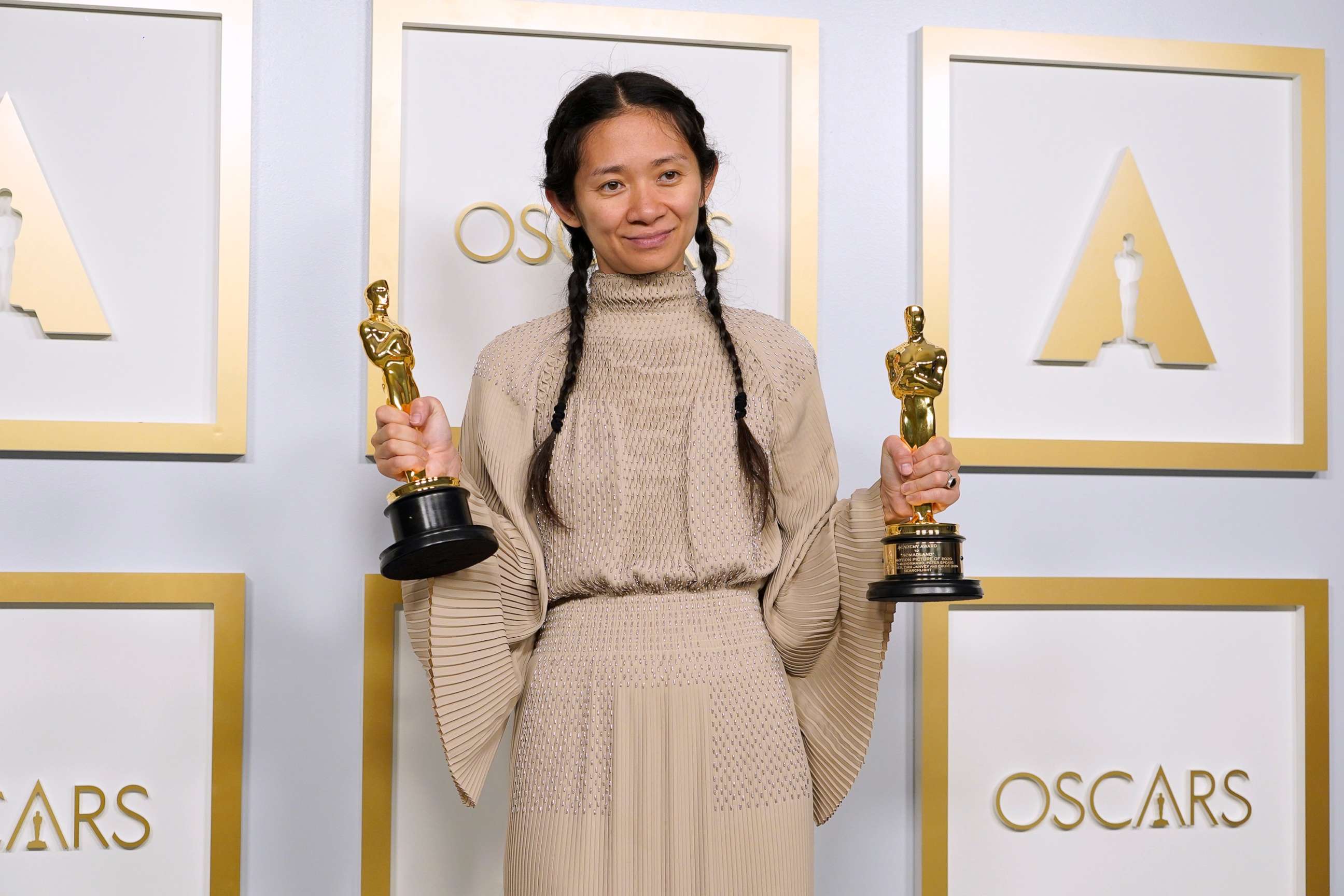
More of a shock was McDormand’s win for best actress over the night’s toughest competition -- Viola Davis (“Ma Rainey’s Black Bottom”), Carey Mulligan (“Promising Young Woman”), Andra Day (“The United States vs Billie Holiday”) and Vanessa Kirby (“Pieces of a Woman”). The sight of Mulligan, my choice for the prize, sitting with nowhere to go in a dress of Oscar gold, was the show’s most poignant.
As all who know her can attest, McDormand is a force of nature. Having won two best actress prizes already for “Fargo” and “Three Billboards Outside of Ebbing, Missouri,” McDormand now has a third, only one Oscar short of a tie with Katharine Hepburn, whose four acting Oscars still stand as a record.
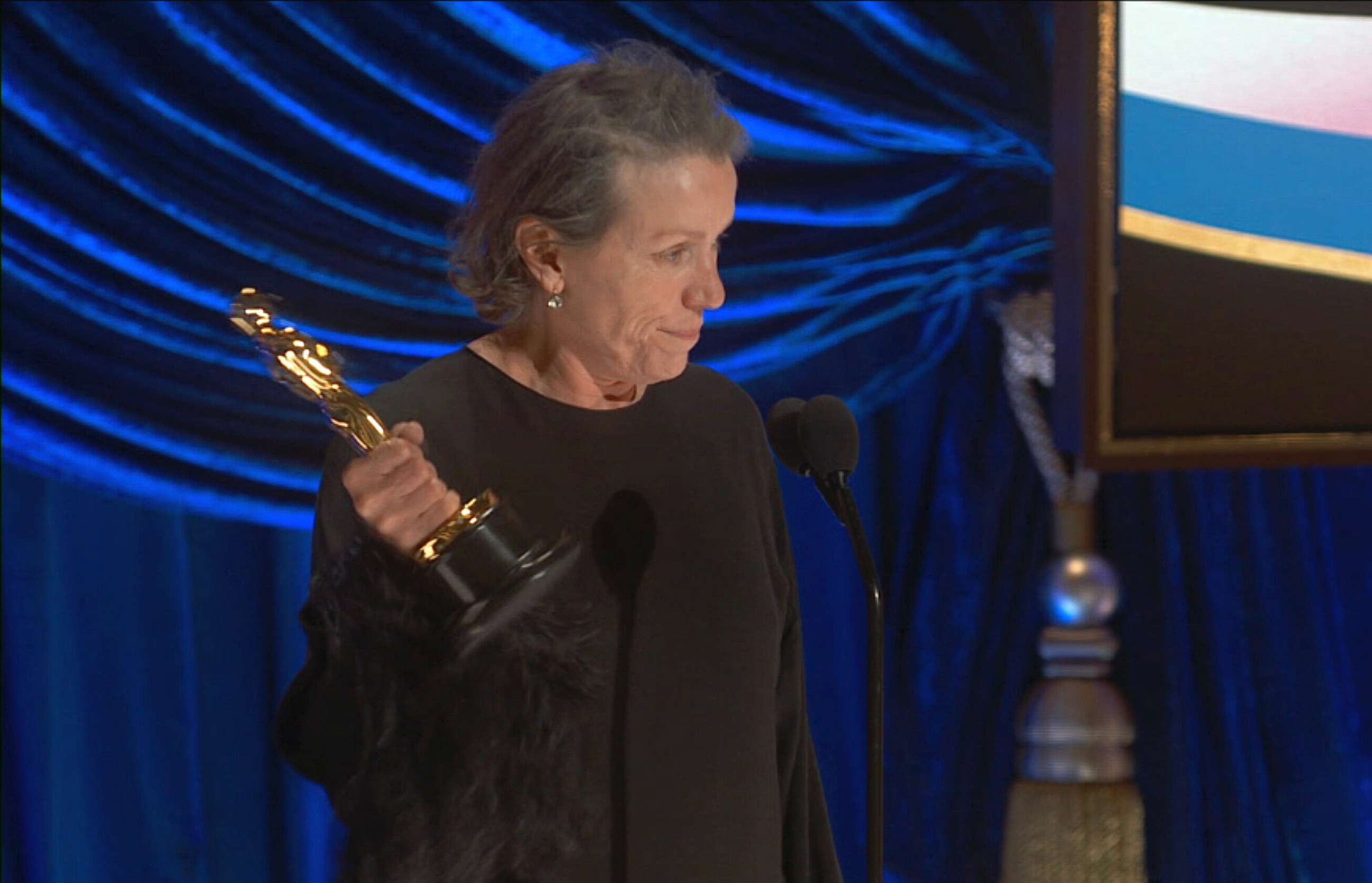
I particularly loved the wolf howl McDormand let out on stage in honor of Michael “Wolf” Snyder, the “Nomadfland” sound mixer who died tragically of suicide on March 1. Somehow, McDormand made that howl a bigger and more personal tribute than any Oscar.
Still, the shock of the night was saved for last, traditionally a time for the best picture prize. The producers decided instead to give the prime spot to best actor, fully expecting, as we all did, that the Oscar would go posthumously to the late Chadwick Boseman for his career best performance in “Ma Rainey’s Black Bottom.” An award that would end the telecast on a note of bittersweet triumph.
Instead, presenter Joaquin Phoenix announced the winner in absentia to be Anthony Hopkins in “The Father,” a harrowing tale of encroaching dementia that Hopkins handled with his customary brilliance.
But, still, this was the Academy’s last chance to honor an actor it previously failed to even nominate for a career of stunning performances. I know we critics are supposed to remain objective, but the Boseman snub hurt.
It also ended the Oscar 2021 show on an anticlimax, perhaps inevitable in a year when nothing was as it used to be, when we are all left hanging about what’s next for movies.
What the show did right was instilling a sense of movie love that can withstand any assault. Even in the year of a deadly virus and virulent social injustice, that love endures.
